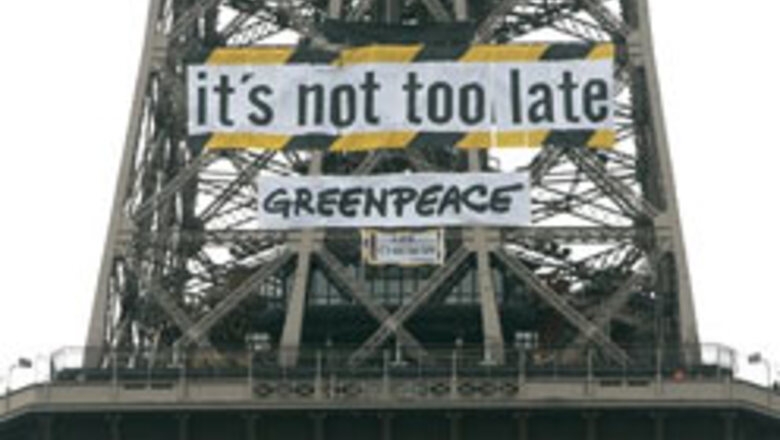
views
Paris: The words of warning about global warming from the top panel of international scientists on Friday were purposely blunt: ''warming of the climate system is unequivocal,'' the cause is ''very likely'' man-made, and ''would continue for centuries.''
Officially releasing a 21-page report in Paris, the Intergovernmental Panel on Climate Change gave a bleak observation of what is happening now and an even more dire prediction for the future.
''Warming of the climate system is unequivocal, as is now evident from observations of increases in global average air and ocean temperatures, widespread melting of snow and ice, and rising global mean sea level,'' the report said.
The head of the panel, Indian climatologist Rajendra Pachauri, called it a ''very impressive document that goes several steps beyond previous research.'' A senior US government scientist, Susan Solomon, said as the report was released, ''There can be no question that the increase in greenhouse gases are dominated by human activities.''
The report said man-made emissions of greenhouse gases can already be blamed for these current problems: fewer cold days, hotter nights, killer heat waves, floods and heavy rains, devastating droughts, and an increase in hurricane and tropical storm strength, particularly in the Atlantic Ocean.
And if you think it is bad now, the harmful effects during the 21st century ''would very likely be larger than those observed during the 20th century,'' the report said.
The panel predicted temperature rises of 1.1 to 6.4 C (2-11.5 F) by the year 2100. That was a wider range than in the 2001 report. However, the panel also said its best estimate was for temperature rises of 1.8 to 4 C (3.2-7.1 F).
On sea levels, the report projects rises of 7-23 inches (18-58 centimeters) by the end of the century. An additional 3.9-7.8 inches (10-20 centimeters) are possible if recent, surprising melting of polar ice sheets continues.
PAGE_BREAK
And the report said no matter how much civilization slows or reduces its greenhouse gas emissions, global warming and sea level rise will continue on for centuries.
''This is just not something you can stop. We're just going to have to live with it,'' co-author Kevin Trenberth, director of climate analysis for the National Center for Atmospheric Research in Boulder, Colorado, said in an interview. ''We are creating a different planet. If you were to come up back in 100 years time, we'll have a different climate.''
Scientists do worry that world leaders will take that message in the wrong way and throw up their hands, Trenberth said. That would be wrong, he said. Instead, the scientists urged leaders to reduce emissions and also adapt to a warmer world with wilder weather.
''The point here is to highlight what will happen if we don't do something and what will happen if we do something,'' co-author Jonathan Over peck at University of Arizona said. ''I can tell if you will decide not to do something the impacts will be much larger than if we do something.''
''You make a difference on hundred of years time frame, but this is the future of the planet,'' Trenberth told The Associated Press. ''We have to adapt to it.''
Trenberth said the world is paying more attention to scientists now than in previous warnings in 1990, 1995 and 2001. ''The tension is more now,'' he said.
The head of the US delegation, White House associate science adviser Sharon Hays, called the panel's summary ''a significant report. It will be valuable to policy makers.''
















Comments
0 comment